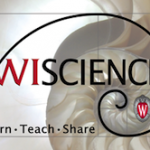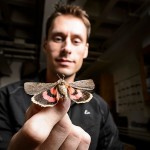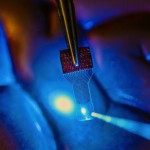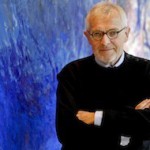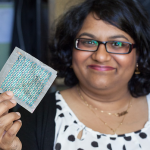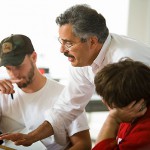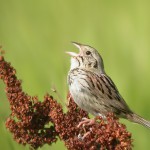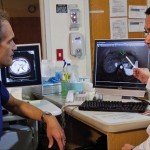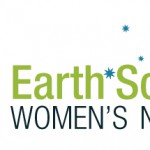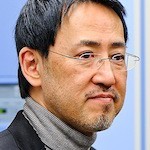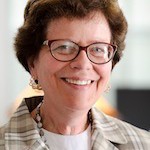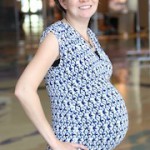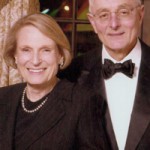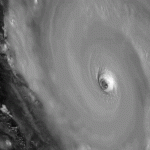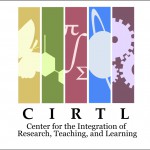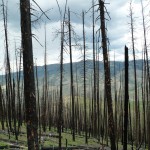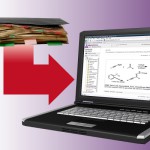Tag Research
WISCIENCE to expand possibilities for science education, outreach
The University of Wisconsin–Madison’s Institute for Biology Education is announcing its expansion to become the Wisconsin Institute for Science Education and Community Engagement, or WISCIENCE. The new mission extends across the natural sciences and expands responsibility for facilitating cross-campus collaboration and coordination in the areas of science outreach and support for groups underrepresented in science.
Wisconsin’s new ‘bug guy,’ insect detective arrives on campus
His favorite insect is one he has actually never seen alive in the wild. It lives on snowfields and glaciers in the American West, aptly named an ice crawler. But PJ Liesch, the University of Wisconsin–Madison’s new “bug guy,” continues to search for it. “I’ve been out West looking for them a couple of times and haven’t had any luck, so they’re kind of one I have on my bucket list, just to see one of those out in the wild,” says Liesch. The insect specialist officially took over as manager of the UW–Madison Insect Diagnostic Lab this summer.
UW to serve as national hub for mentor training as part of diversity consortium
The University of Wisconsin–Madison will serve as a national hub for research mentor and mentee training for the National Research Mentoring Network (NRMN) recently announced by NIH as part of a national Diversity Program Consortium. The NIH will award the Diversity Program Consortium nearly $31 million in fiscal year 2014 funds to develop new approaches that engage researchers, including those from backgrounds underrepresented in biomedical sciences, and prepare them to thrive in the NIH-funded workforce.
Seven receive Fulbright awards for doctoral research
The U.S. Department of Education has awarded grants totaling $306,628 to seven doctoral students at the University of Wisconsin–Madison, through the Fulbright-Hays Doctoral Dissertation Research Abroad (DDRA) program.
See-through sensors open new window into the brain
Developing invisible implantable medical sensor arrays, a team of University of Wisconsin–Madison engineers has overcome a major technological hurdle in researchers’ efforts to understand the brain. The team described its technology, which has applications in fields ranging from neuroscience to cardiac care and even contact lenses, in the Oct. 20 issue of the online journal Nature Communications.
UW physicist receives American Ingenuity Award for IceCube effort
Francis Halzen, the University of Wisconsin–Madison physicist who was the driving force behind the giant neutrino telescope known as IceCube at the South Pole, has been named a winner of the 2014 American Ingenuity Award.
UW-Madison chemist named Packard Fellow
Trisha Andrew, a University of Wisconsin–Madison assistant professor of chemistry, is one of 18 early career scientists from around the country named a Packard Fellow for Science and Engineering. The award includes a grant of $875,000 over five years to pursue research and is given in recognition of the potential significance of scholarship and innovation from the nation’s most promising young scientists and engineers.
Balancing birds and biofuels: Grasslands support more species than cornfields
In Wisconsin, bioenergy is for the birds. Really. In a study published today in the journal PLOS ONE, University of Wisconsin–Madison and Wisconsin Department of Natural Resources (DNR) scientists examined whether corn and perennial grassland fields in southern Wisconsin could provide both biomass for bioenergy production and bountiful bird habitat. The research team found that where there are grasslands, there are birds. Grass-and-wildflower-dominated fields supported more than three times as many bird species as cornfields, including 10 imperiled species found only in the grasslands.
Company developing radio frequency technology to localize breast tumors
Breast cancer may inspire more public discussion, advocacy and charitable giving than almost any other disease besides HIV and AIDS. But people rarely talk about the specific experiences to which cancer patients are subjected.
New nonprofit supports women in science
Tracey Holloway was a postdoctoral researcher at Columbia University in 2002, Ph.D. from Princeton University freshly in hand, when she and five colleagues teamed up to create an informal support network for other women in their field.
Influenza researcher Yoshihiro Kawaoka wins Breakthrough Award
The University of Wisconsin–Madison's Yoshihiro Kawaoka has been recognized as a 2014 Popular Mechanics Breakthrough Award recipient for his efforts to understand and prevent pandemic influenza.
Lubar gift innovates to diversify Law School research
A $3 million gift will allow the University of Wisconsin Law School to support top legal scholars in a new and creative way, Dean Margaret Raymond announced today.
Unique MOOC with in-person sessions offered for future and current college STEM faculty
A new MOOC (Massive Open Online Course) offering an in-person twist — local weekly facilitated meetings — debuts next week to help future and current college STEM (science, technology, engineering and math) faculty become better teachers. It is designed to be of special interest to grad students planning to teach professionally.
Mountain pine beetles get a bad rap for wildfires, study says
Mountain pine beetles get a bad rap, and understandably so. The grain-of-rice-sized insects are responsible for killing pine trees over tens of millions of acres in the Western U.S. and Canada over the last decade. But contrary to popular belief, these pests may not be to blame for more severe wildfires like those that have recently swept through the region. Instead, according to a new study by UW–Madison zoology professor Monica Turner, weather and topography play a greater role in the ecological severity of fires than these bark-boring beetles.
Electronic Lab Notebooks now available
Researchers have long relied on the venerable and trusted paper lab notebook for keeping an orderly record of research data, notes and experimental procedures. Soon, researchers on the UW–Madison campus will have a new option to store and organize these activities in the form of Electronic Lab Notebook (ELN) software services under a new UW contract with LabArchives.

